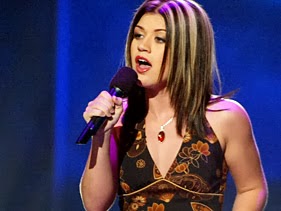 |
| Sister Evangeline (Pam Ferris) and Jenny Lee (Jessica Raine) |
You can re-read the old post, but here are the highlights from that post:
- Call The Midwife is a "girly show" (very female focused in terms of characters, writing, and themes)
- Main character Jenny (Jessica Raine) is a unique character because she "observes" more than she "does"
- Chummy (Miranda Hart) is really the most enjoyable character is Season 1, and all thought supporting is the most compelling and interesting character.
- It's historically interesting to see how much has changed in a half dozen decades.
My wife loves it, and I can bare it, so I wanted Season 2. I have some new thoughts on the show having watched the second season.
The second season was a little bit of slow start for me, but it quickly picked up my interest. In a way Chummy (Miranda Hart) was such a tour de force type of performer in the firm season, that when she is absent for most of the second season, it allows some more subtle character actors to shine.
In terms of strong character performances, everyone seems to get a chance to take the main stage for a moment in season 2 (again, largely because the central character is not always super-active in the plot).
I really found myself compelled by the story of the nuns in the second season. It's an interesting world created in this film with young single midwifes sharing a living space with a wide age-range of nuns. Nonnatus House in Poplar is such an interesting setting in this regard.
 |
| Sister Julienne (Jenny Agutter) and Sister Bernadette (Laura Main) |
Of course, central to the story is the exceptionally done work of Sister Bernadette (Laura Main), the youngest nun. But I also find myself really attracted to the characters of Sister Julienne (Jenny Agutter) who is a beautifully compelling character - who's overall personae of sensitivity mixed with control and insight is radically compelling. Sister Evangelina (Pam Ferris) is more hilarious than ever as a no-nonsense nun, and the aging Sister Monica Joan (Judy Parfitt), is compelling in her ways.
The characters here seem to find their place in the narrative, and in many scenes I found myself very touched.
Season 2 seems to deal with some more dramatic social issues, as well as changing times in East London and the world.
 |
| Assistant Jane Sutton (Dorothy Atkinson) and Rev. Applebee-Thornton (Jason Watkins) |
Yet in the midst of all the social issues and heavy stories, by far my favorite episode and story of season 2 was the surprising story in Episode #2.4. This episode tells the story of nursing assistant Jane Sutton (Dorothy Atkinson) and Reverend Applebee-Thornton (Jason Watkins). Jane is this mysterious uber-shy nursing assistant who comes to Nonnatus House to replace Chummy (but with far different skills), and Rev. Applebee-Thornton is the most talkative person ever. Yet their combined awkwardness
creates a special TV-screen magic. Episode director Roger Goldby and episode writer Mark Catley did something special when they crafted this episode and story-line.
creates a special TV-screen magic. Episode director Roger Goldby and episode writer Mark Catley did something special when they crafted this episode and story-line.
So, if you can't read it my tone, generally I found myself far more engaged in season 2 than season 1. The themes were a little broader. But more than that, the characters were much deeper, and I found myself caught in this series, pleased it will return for a third season in 2014.













